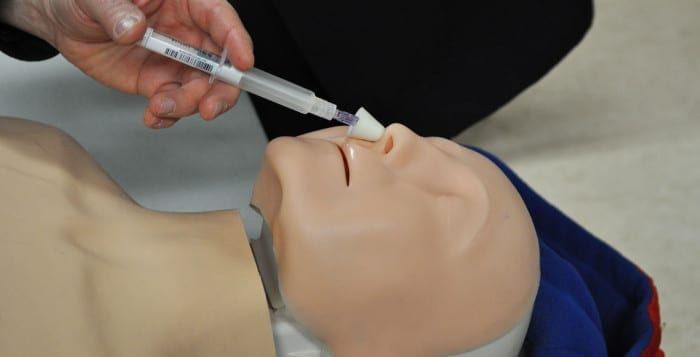Prevention can fix the drug problem

We’ve been hit with some staggering figures. The Centers for Disease Control and Prevention reported more than 28,000 overdose deaths in 2014 as a result of heroin or opioid abuse, the highest number on record. Last year alone Suffolk County suffered 103 fatal heroin overdoses. Suffolk tallied more heroin-related overdose deaths than any county in New York from 2009 to 2013, according to the New York State Opioid Poisoning, Overdose and Prevention 2015 Report.
Although local and national initiatives have come from all different angles to try to combat the rise in heroin and opioid abuse, we think lawmakers lack focus.
Most recently, U.S. Rep. Lee Zeldin (R-Shirley) endorsed a large legislation package that would review and update guidelines for prescribing opioids and pain medication and require a report to Congress on the availability of substance abuse treatment in the country, among many other provisions. While we applaud any earnest effort to combat the widespread problem, there needs to be more focus from one specific angle: prevention.
With treatment and recovery options across the North Shore and with the rate at which the county is now taking down drug dealers, enforcement and rehabilitation are not our biggest problems. Instead, more needs to be done to deter kids from ever considering to try drugs in the first place. While some schools have begun to work on this, working with police to hold Narcan training sessions and informational forums, students should be seeing more than just numbers and figures, police officers or counselors.
Tracey Budd, of Rocky Point, helped Suffolk County create a public service announcement, “Not My Child,” that has been shown in schools. Budd lost her son to a heroin overdose and her message is powerful. Kids need to see the struggles that addicts and their families go through to help hammer home how dangerous drugs are.
We also urge parents to be more aware and involved. You know your child — look, listen and ask questions. There are signs in mood, behavior, habit and appearance that could warn you that there’s a serious problem. And don’t be afraid to set boundaries or to talk both about drugs and other topics that may seem difficult or awkward. Many people are drawn to drugs because of an underlying emotional issue, but letting a teenager know that nonjudgmental ears are listening could be a solution.
Frederick Douglass once famously said, “It is easier to build strong children than to repair broken men.” Building those stronger children is how we should tackle our country’s growing drug problem.






